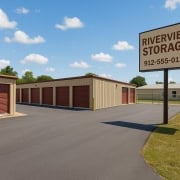All About Careers in Real Estate Development (Updated May 2024)
Professionals in real estate development jobs, either working for themselves or their employer, create new places for people to live, work, shop, and play. This person typically is involved with the transaction from land sourcing through lease-up and is depended on by a host of stakeholders to insure the outcome of the project is a successful one.
Not for the faint of heart – development can be stressful, risky, and laden with hurdles – the capable and experience-hardened developer commands arguably the highest compensation in the industry. It’s very much a high risk, high reward career.
Search our list of jobs in development and construction or use our advanced search page.
Typical Development Job Titles
When working for others, jobs titles generally include Development: Analyst, Senior Analyst, Associate , Senior Associate, Director, Vice President, Executive Director, Managing Director and so forth; similar to titles in acquisitions and asset management. When working for themselves, the real estate development professional is known as a Developer.
Where They Work
These professionals most often work at firms acting as the general partner (sponsor) of ground-up development projects. Some public equity, but mostly private equity and family offices have this type of investment platform. Less common but still applicable, large limited partners such as life insurance companies, endowments, pension funds, sovereign wealth funds and other large institutional investors will hire development professionals to vet and track investments.
General Duties and Responsibilities in Development Jobs
While the exact duties and responsibilities vary by firm and job level, here is what developers in development jobs typically are required to do:
- Source and analyze new investment opportunities,
- Negotiate land purchase contracts,
- Lead due diligence process,
- Work with land-use planners, architects, engineers, consultants, and others to design a project to the property’s highest and best use,
- Manages entitlement process, the process by which development approvals are obtained from governing bodies,
- Seek out construction team (general contractor, etc) and negotiate construction contracts ,
- Coordinates with internal team to acquire construction and permanent financing,
- Works with asset manager to plan and execute leasing strategy,
- Review and coordinate approval of bank draws, closing documentation and support financing and re-financing activity,
- Prepare project schedules, annual budget, and strategic plan for assets and initiatives under their responsibility.
Common Requirements
Development professionals above the analyst level typically have some combination of graduate education and development experience. Firms that work with large institutions typically expect their developers to have an MBA or Masters in Real Estate while smaller firms generally care more about relevant local market experience. A strong understanding of real estate principals, ability to quantitatively analyze investments using tools such as Excel, and strong relationships in the industry are paramount.
Salary of Real Estate Development Jobs
See our section on salaries in real estate for more information.
Keys to Success
Individuals who succeed in real estate development are those with deep real estate and market knowledge. They are especially apt at confronting and overcoming challenges; as the development process is topsy turvy, unpredictable, and risky. Real estate is highly cyclical and so those who wish to pursue this tract must be willing to adapt to the changing markets and be willing to go without a job or project on occasion. Those who succeed at this role often go out on their own and earn great sums of money for themselves and their investor partners.
Conclusion and Resources
Real estate development jobs are marked by both high risks and high rewards. It demands a robust set of skills, including market knowledge, negotiation, strategic planning, and risk management. For those who excel in these areas, real estate development offers the potential for significant financial rewards and a dynamic work environment. Aspiring developers should be prepared for the intense demands and variable nature of this field, but those who can navigate these challenges effectively will find opportunities to make a substantial impact in the landscape of communities and cities.
Additionally, to further help you as you plan your career, we’ve developed a variety of career and education resources here at A.CRE that we’ve found valuable as we’ve blazed our own career paths (see below). Moreover, for those ready to actively pursue new opportunities, consider using our Cover Letter Composer tool. This custom GPT is designed to help you craft compelling cover letters tailored to various roles in commercial real estate, enhancing your applications and improving your chances of landing an interview in this competitive field. Utilizing resources like this can be a significant step towards advancing your career in CRE.
CAREER RESOURCES AT A.CRE
- A.CRE Commercial Real Estate Job Board
- Day in the Life Series
- General Content on Careers in CRE
- Help with CRE Interviews
EDUCATION RESOURCES AT A.CRE
- A.CRE 101
- Deep Dive Series
- Glossary of CRE Terms
- Series on Graduate Programs (MBA and Masters) in Real Estate
- Learn real estate financial modeling with the A.CRE Accelerator
Frequently Asked Questions about Careers in Real Estate Development
What do professionals in real estate development do?
Real estate developers are responsible for creating new spaces for people to live, work, and play. They manage the entire development process—from sourcing land and conducting due diligence to securing entitlements, overseeing construction, and managing lease-up. They coordinate with a wide range of stakeholders to ensure the project’s success.
What are common job titles in real estate development?
Typical job titles include: Development Analyst, Senior Analyst, Associate, Senior Associate, Director, Vice President, Executive Director, and Managing Director. Independent professionals are often referred to simply as Developers.
Where do real estate developers work?
They typically work for general partners (sponsors) such as private equity firms, family offices, or developers. Less commonly, development professionals are employed by institutional limited partners (e.g. pension funds, endowments, life insurance companies) to manage and vet projects.
What are the core responsibilities in development roles?
Responsibilities may include sourcing deals, negotiating land purchases, managing due diligence, working with consultants and city planners, handling entitlements, arranging construction and permanent financing, overseeing budgeting and scheduling, and coordinating leasing strategies and financing activities.
What qualifications are commonly expected?
Professionals above analyst level often hold an MBA or a Master’s in Real Estate. Strong Excel and analytical skills, local market knowledge, and a solid industry network are typically required. Experience is prioritized over education at smaller firms.
Is real estate development considered high risk?
Yes. Real estate development is one of the highest risk paths in commercial real estate due to market cycles, entitlement challenges, and capital needs. However, it also offers some of the highest financial rewards in the industry for successful professionals.
What traits help developers succeed in this career?
Success in development requires adaptability, deep market and real estate knowledge, problem-solving ability, and resilience. Developers must navigate unpredictability and may face periods of no income or project activity.
Where can I find more resources to prepare for a development career?
A.CRE offers extensive career and education resources, including:
A.CRE Job Board
Day in the Life Series
Career content and interview prep
A.CRE 101 and Deep Dive Series
Glossary of CRE Terms
Graduate program overviews
The A.CRE Accelerator financial modeling training









